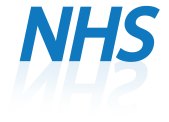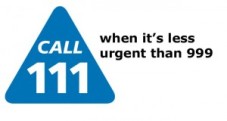
Sadly, GP’s have come into attack again in the UK from the press. The main complaint is that patients are waiting far too long for appointments, and I think we can all agree with this. Waiting times are far too long, BUT this is not the fault of the GP ‘s who are trying their best to keep their patients happy.
1 in 10 GP’s are seeing up to 60 patients a day many seeing 40 when realistically they should be seeing around 30.
People that think that GP’s are at fault for the lack of appointments they just simply don’t appreciate the work that goes into a day in the Surgery.
GP’s don’t just see patients, they have letters to write from patient consultations. They have results to chase up, prescriptions to check and sign, home visits to do, meetings to attend, various insurance forms to go through, and quite often this is done through their lunch breaks or staying after evening surgery to get it all done.
Managing the appointments system is usually tasked to the Practice Manager who will work closely with the GP’s and they are constantly looking for ways to improve on their current system for the good of their patients.
Every week every single surgery has many DNA (did not attend) appointments. Patients that have booked appointments simply don’t turn up or cancel them, despite many being send alerts via their phone which are easy to cancel.
Some surgeries offer appointments whereby patients’ phone first thing to get an appointment that same day. This doesn’t always work well for people that are working because getting time off at short notice is not always possible. While this system suits some patients, others complain that they cannot pre-book appointments. As well we know any appointment system will suit some and not others.
The knock-on effect of patients unable to access appointments at a time convenient to them just don’t realise the impact that it has on the whole team. It starts with the Receptionist who contrary to belief are there to help the patients and happy to do so. They don’t enjoy having to go through pages of appointments to then tell the patient that all the appointments have gone. Or to tell the patient that the next available one is 3 weeks away. Believe me the job is far more enjoyable when the Receptionist can actually offer the patient what they want.
Another thing that really annoys some patients is when the Receptionist asks what they want to see the doctor for. It’s not to be nosey. It’s certainly not to be difficult, its simply to see if another healthcare professional could see the patient instead of the doctor. Many larger Practices have ECP’s (Emergency Care practitioner) who can prescribe, Practice Nurses, District Nurses, HCA’s (Health Care Assistants), Paramedics, Phlebotomists. By asking what the appointment is needed for can often direct the patient to another healthcare who can help. This then allows patients that need to see a doctor having better access.
Many Surgeries are now open longer hours. As early as 7.30 in the morning and until 8.00 in the evening, and some are now opened for emergencies at weekends.
We are also very lucky that we have access to a doctor or healthcare professional 24/7 by phoning 111 or in an emergency 999 or going to A&E.
The press is saying that patients are saying that afternoon appointments can often find the doctor not as compassionate as they would be in the morning. In my experience this simply isn’t true. But ask yourself, if you were working 12 hours a day with no break, trying to you best to accommodate everyone that came in to see you that day, trying to keep everyone happy would you not be exhausted. Of course, you would, GP’s are human beings too, they are victims or stressful jobs, and they get tired like the rest of us.
Where I live they are in the process of building a new housing estate which will consist of 600 new homes. There are no allowances for these people wanting to register at a GP Practice. The local practice is already at breaking point, and yet the government will expect the people in these new homes to be registered somewhere. Who will suffer the most, the new patients because they might have to travel miles to register with a GP. The local surgery will suffer if they have to take on new patients, and then in turn the patients already registered at the practice will be waiting longer for appointments than before.
Patient demands are rising. Expeditions and behaviour from a minority of patient often leading to GP’s, Receptionists and other healthcare professionals exhausted at the end of the day- and then they have to face the very same the following day.
So, next time you have to wait weeks for an appointment, remember the Receptionist doesn’t take any delight in doing this and certainly the GP’s are not the cause of it.













